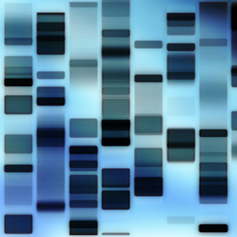Researchers from the University of British Columbia have developed a new method for extracting DNA. and R.N.A. from highly contaminated samples, a method that can help MZP researchers and molecular biologists reach the discovery of the truth.

Researchers from the University of British Columbia have developed a new method for extracting DNA. and R.N.A. from highly contaminated samples, a method that can help MZP researchers and molecular biologists reach the discovery of the truth.
"By utilizing the physical properties of DNA - Electric charge, length and flexibility - we managed to exhaust d.na. from samples, which with other methods would not have produced enough clean material for examination," says the biophysicist, Professor Andre Marziali.
The method is now being commercialized by the Boreal Genomics company, a subsidiary of the university, and it is supposed to embody in it extensive applications, from basic research in the life sciences to medical examination of samples, biological protection, detection of various pathogens found in food and medical diagnosis .
DNA extraction With existing methods - which are based on the chemical characteristics of the material - it has proven to be quite a challenge when only a small amount of DNA is available. or when the desired source samples have been contaminated with other similar chemicals.
"We found that DNA and R.N.A. react to an electric field in a completely different way from other materials," explains the lead researcher. "Using this unique feature, we were able to exhaust d.na. At a very high level of cleanliness from a highly contaminated sample originating from the tar sands of Alberta, Canada."

One response
Excellent! This, combined with the method for testing MZP without PCR that Yael Petar published a few days ago, warms the heart of every molecular biologist. It is wonderful and enlivens the soul. Hopefully, more research (and more scientific publications) will bring to our attention new and more successful methods than exist today.
Greetings friends,
Ami Bachar